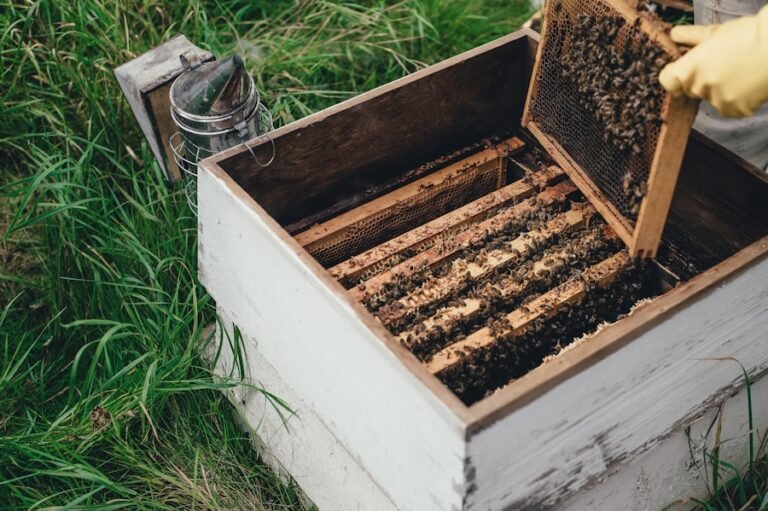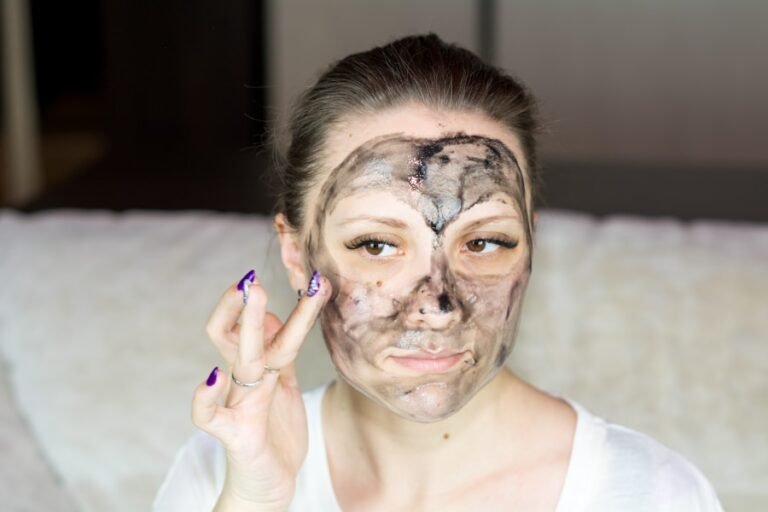Burp-Free No More: Natural Remedies for Can\’t Burp
Can’t Burp, also known as Retrograde Cricopharyngeus Dysfunction (R-CPD), is a condition characterized by the inability to burp or release gas from the stomach through the mouth. While burping is a normal bodily function that helps to relieve excess gas in the digestive system, individuals with Can’t Burp experience difficulty or complete inability to do so. This condition can be uncomfortable and even painful, leading to a range of symptoms that can significantly impact a person’s quality of life. Understanding the causes and symptoms of Can’t Burp is crucial in order to find effective treatment options and alleviate the discomfort associated with this condition.
Understanding Can’t Burp: Causes and Symptoms
Can’t Burp is primarily caused by a dysfunction in the cricopharyngeus muscle, which is responsible for opening and closing the upper esophageal sphincter. When this muscle fails to relax properly, it can prevent the release of gas from the stomach through the mouth, leading to the inability to burp. The exact cause of this dysfunction is not fully understood, but it is believed to be related to a combination of genetic and environmental factors.
Common symptoms of Can’t Burp include bloating, discomfort or pain in the abdomen, excessive flatulence, and a feeling of fullness even after eating small amounts of food. Some individuals may also experience regurgitation of food or liquid, as well as difficulty swallowing. These symptoms can vary in severity from person to person and may be exacerbated by certain foods or activities.
The Dangers of Untreated Can’t Burp
Leaving Can’t Burp untreated can have potential risks and complications. The accumulation of excess gas in the digestive system can lead to increased pressure and discomfort, causing bloating and pain. In severe cases, this pressure can even cause the stomach to distend or expand, leading to a condition known as gastric dilatation. This can be a medical emergency and may require immediate intervention.
Furthermore, the inability to burp can also lead to the regurgitation of stomach acid into the esophagus, causing heartburn and acid reflux. Over time, this can damage the lining of the esophagus and lead to more serious conditions such as gastroesophageal reflux disease (GERD). It is important to seek treatment for Can’t Burp in order to prevent these potential risks and complications.
Natural Remedies for Can’t Burp: An Overview
While there is no known cure for Can’t Burp, there are several natural remedies that can help alleviate the symptoms and improve overall digestive health. These remedies focus on addressing the underlying causes of Can’t Burp, such as muscle dysfunction and digestive imbalances. Natural remedies can be a safe and effective alternative to pharmaceutical interventions, providing relief without the risk of side effects.
Some natural remedies for Can’t Burp include dietary changes, herbal remedies, probiotics, digestive enzymes, hydration, exercise, and stress management techniques. These remedies work by promoting proper digestion, reducing inflammation, improving muscle function, and supporting overall gut health. It is important to note that while natural remedies can be beneficial, they may not work for everyone. It is always recommended to consult with a healthcare professional before starting any new treatment regimen.
Herbal Remedies for Can’t Burp: A Comprehensive Guide
Herbal remedies have been used for centuries to promote digestive health and alleviate symptoms associated with various gastrointestinal conditions. When it comes to Can’t Burp, certain herbs can help relax the cricopharyngeus muscle and improve overall digestion.
One such herb is chamomile, which has been traditionally used to soothe the digestive system and reduce inflammation. Chamomile tea can be consumed regularly to promote relaxation of the cricopharyngeus muscle and relieve symptoms of Can’t Burp. Another herb that can be beneficial is peppermint, which has been shown to relax the muscles of the gastrointestinal tract and reduce bloating and gas. Peppermint tea or capsules can be taken to alleviate symptoms of Can’t Burp.
Other herbs that may be helpful include ginger, fennel, and caraway. These herbs have been used for centuries to aid digestion, reduce bloating, and relieve gas. They can be consumed as teas, added to meals, or taken in supplement form.
The Role of Probiotics in Treating Can’t Burp
Probiotics are beneficial bacteria that can help restore the balance of gut flora and improve overall digestive health. These live microorganisms can help break down food, reduce inflammation, and promote proper digestion. In the case of Can’t Burp, probiotics can help regulate the gut microbiome and alleviate symptoms such as bloating and excessive gas.
Certain strains of probiotics have been shown to be particularly beneficial for digestive health. Lactobacillus acidophilus and Bifidobacterium lactis are two strains that have been studied for their ability to improve digestion and reduce symptoms of gastrointestinal disorders. These probiotics can be found in fermented foods such as yogurt, kefir, sauerkraut, and kimchi. They are also available in supplement form.
It is important to note that not all probiotics are created equal, and different strains may have varying effects on digestive health. It is recommended to choose a high-quality probiotic supplement that contains a variety of strains for maximum benefit.
The Benefits of Digestive Enzymes in Relieving Can’t Burp
Digestive enzymes are substances produced by the body that help break down food into smaller molecules for absorption. In individuals with Can’t Burp, digestive enzymes can help improve digestion and reduce symptoms such as bloating and gas.
Supplementing with digestive enzymes can provide additional support for the digestive system, especially for individuals with Can’t Burp. These enzymes can help break down carbohydrates, proteins, and fats, allowing for better absorption and utilization of nutrients. They can also help reduce inflammation in the digestive tract and promote overall gut health.
Some of the best digestive enzymes for treating Can’t Burp include amylase, protease, and lipase. These enzymes help break down carbohydrates, proteins, and fats respectively. They can be taken in supplement form before meals to aid digestion and alleviate symptoms.
The Importance of Hydration in Preventing Can’t Burp
Hydration plays a crucial role in maintaining proper digestion and preventing symptoms of Can’t Burp. Drinking enough water throughout the day helps to keep the digestive system functioning optimally, allowing for the efficient breakdown and absorption of nutrients.
When the body is dehydrated, it can lead to constipation and poor digestion, which can exacerbate symptoms of Can’t Burp. It is important to drink an adequate amount of water each day to ensure proper hydration and support overall digestive health.
In addition to water, herbal teas can also be beneficial for hydration and digestion. Certain herbal teas such as ginger tea, chamomile tea, and peppermint tea have been shown to have soothing effects on the digestive system and can help alleviate symptoms of Can’t Burp.
The Role of Exercise in Treating Can’t Burp
Regular exercise is not only important for overall health and well-being but can also play a role in treating Can’t Burp. Exercise helps to stimulate digestion by increasing blood flow to the gastrointestinal tract and promoting muscle contractions.
Certain exercises can be particularly beneficial for individuals with Can’t Burp. Gentle exercises such as walking, yoga, and stretching can help improve digestion and relieve symptoms of bloating and gas. These exercises can be done regularly to promote overall gut health and alleviate discomfort associated with Can’t Burp.
It is important to note that intense or strenuous exercise may have the opposite effect and can actually worsen symptoms of Can’t Burp. It is recommended to start with gentle exercises and listen to your body to determine what works best for you.
The Impact of Stress on Can’t Burp and How to Manage It
Stress can have a significant impact on digestive health and can exacerbate symptoms of Can’t Burp. When the body is under stress, it releases stress hormones that can disrupt the normal functioning of the digestive system, leading to symptoms such as bloating, gas, and indigestion.
Managing stress is crucial in preventing and alleviating symptoms of Can’t Burp. There are several techniques that can help reduce stress levels and promote relaxation, such as deep breathing exercises, meditation, yoga, and mindfulness practices. These techniques can be incorporated into daily routines to help manage stress and improve overall digestive health.
In addition to these techniques, it is also important to prioritize self-care and engage in activities that bring joy and relaxation. This can include hobbies, spending time with loved ones, getting enough sleep, and practicing good self-care habits.
Dietary Changes to Prevent Can’t Burp
Making dietary changes can be an effective way to prevent symptoms of Can’t Burp and promote overall digestive health. Certain foods can contribute to bloating, gas, and indigestion, while others can help soothe the digestive system and alleviate symptoms.
Foods that are known to cause bloating and gas include carbonated drinks, beans, lentils, broccoli, cabbage, onions, garlic, and certain fruits such as apples and pears. These foods contain complex carbohydrates that are difficult for the body to digest, leading to the production of excess gas.
On the other hand, there are foods that can help soothe the digestive system and reduce symptoms of Can’t Burp. These include ginger, chamomile, peppermint, fennel, and caraway, as mentioned earlier. Additionally, foods that are rich in fiber, such as whole grains, fruits, and vegetables, can help promote regular bowel movements and prevent constipation.
It is important to listen to your body and pay attention to how certain foods affect your digestion. Keeping a food diary can be helpful in identifying trigger foods and making necessary dietary adjustments.
Seeking Professional Help for Chronic Can’t Burp: When to See a Doctor
While natural remedies can be effective in alleviating symptoms of Can’t Burp, it is important to seek professional help if the condition persists or worsens. Chronic Can’t Burp may require medical intervention and a proper diagnosis from a healthcare professional.
If symptoms of Can’t Burp are severe or significantly impacting your quality of life, it is recommended to see a doctor. They can perform a thorough evaluation, including a physical examination and possibly additional tests such as an endoscopy or esophageal manometry, to determine the underlying cause of the condition.
A doctor may recommend various treatment options depending on the severity and underlying cause of Can’t Burp. These may include medications to relax the cricopharyngeus muscle, Botox injections to temporarily paralyze the muscle, or surgery in more severe cases.
Can’t Burp is a condition characterized by the inability to burp or release gas from the stomach through the mouth. While it may seem like a minor inconvenience, this condition can have significant impacts on a person’s quality of life. Understanding the causes and symptoms of Can’t Burp is crucial in order to find effective treatment options and alleviate discomfort.
Natural remedies such as herbal remedies, probiotics, digestive enzymes, hydration, exercise, stress management techniques, and dietary changes can be beneficial in relieving symptoms of Can’t Burp. These remedies focus on addressing the underlying causes of the condition and promoting overall digestive health.
However, it is important to seek professional help if symptoms persist or worsen. Chronic Can’t Burp may require medical intervention and a proper diagnosis from a healthcare professional. They can provide appropriate treatment options and ensure that any underlying conditions are properly addressed.
In conclusion, understanding Can’t Burp and seeking treatment is essential for improving digestive health and overall well-being. By incorporating natural remedies and seeking professional help when needed, individuals with Can’t Burp can find relief and regain control over their digestive health.






